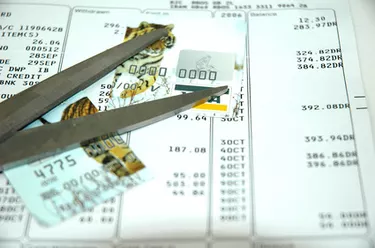
Credit card billing errors happen occasionally and can be corrected when addressed in a timely manner. Fair Credit BiIling Act (FCBA) gives consumers the right to dispute inaccurate credit card billing charges and to have them corrected. The law applies only to revolving accounts, including department store cards. It does not cover installment loans.
Types of Charges
Video of the Day
Under FCBA, consumers can dispute unauthorized charges. Banks refund all but $50 of the unauthorized charge. FCBA allows disputes for charges with errors in the amount, date or the merchant's name. If a consumer does not receive a product or receives one that is significantly different from the description, he can file a charge dispute. Consumers can request a written explanation of charge, written proof of purchase or a request for clarification.
Video of the Day
Filing a Dispute
Consumers have 60 days from the date the bill with the error was mailed to file a dispute. The dispute must be in writing and mailed to the address for billing inquiries. The Federal Trade Commission advises consumer to send the dispute via certified mail and request a return receipt. Include copies of any supporting documents. The bank must acknowledge the dispute within 30 days and resolve the problem within two billing cycles but in no more than 90 days.
Payment
You must make payment, including a finance charge, on the undisputed amount. The creditor does not have a right to collect a payment on the disputed amount or any related charges. However, the creditor may reduce the available credit by the disputed amount. The creditor may report the dispute to credit bureaus. According to Equal Credit Opportunity Act, a creditor cannot deny credit to a qualified consumer because the consumer is disputing a credit card charge.
Settlement
The creditor will conduct an investigation and report the results to you in writing. If the charge is incorrect, the letter will explain what steps the creditor will take to rectify the situation. The creditor must remove all finance charges, late fees or any other charges associated with the disputed amount. If the creditor determines that the charge is accurate, the letter will explain how much the consumer owes and why. Consumer may disagree with the results of the investigation in writing within 10 days after receiving the explanation. He can request any documents relating to the investigation. At this time, the creditor may report the account as delinquent but must also state that the consumer disagrees that he owes this amount.